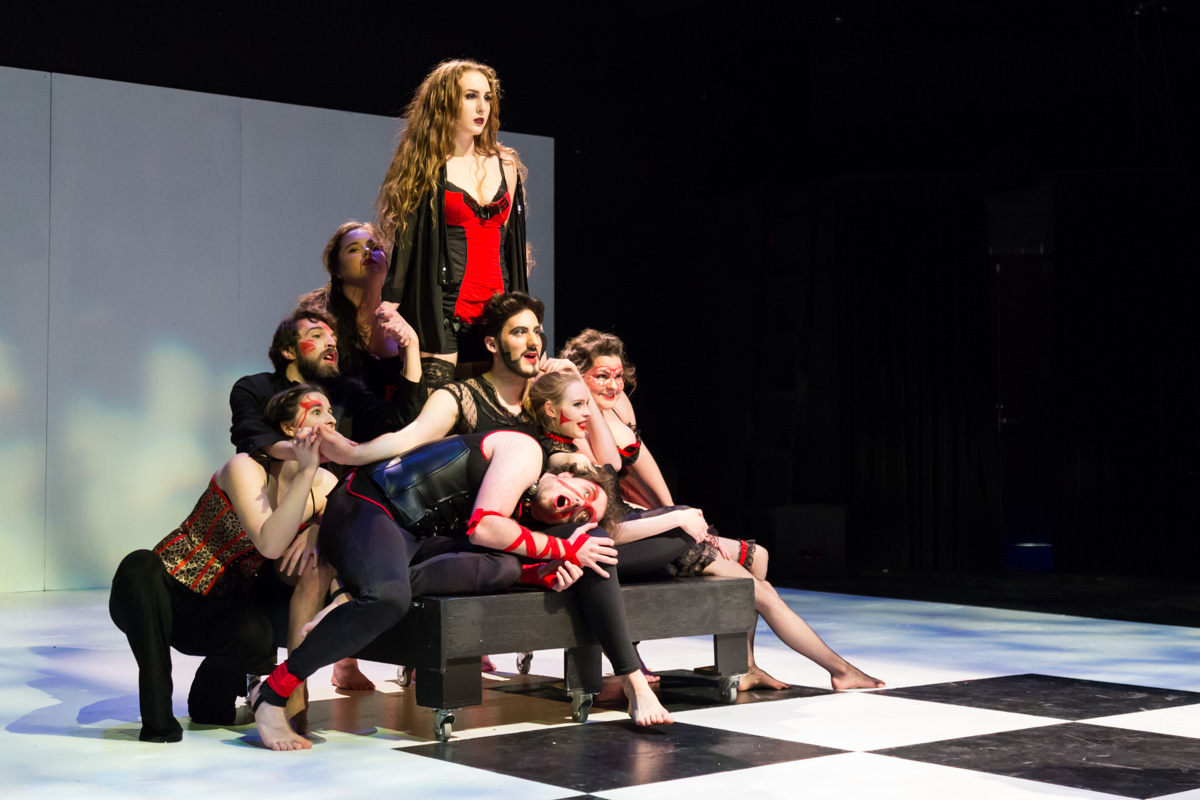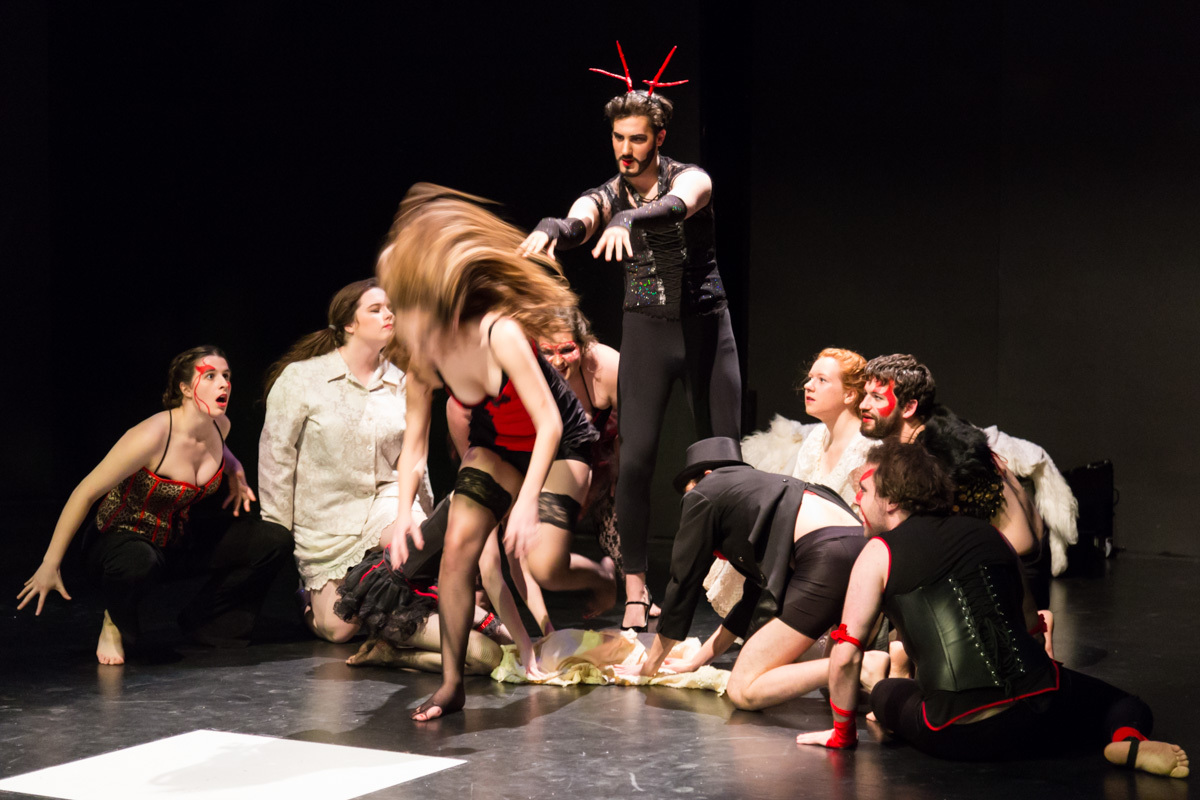
If I learned one thing from seeing the TST production of The Bacchae twice, it’s google what the play is about first. The corsets, constant motion and old men in nine-inch heels distracted from the modernized yet decidedly Greek dialogue. I was a bit lost at first.
That said, as the two-hour production goes on, the choreography make dialogue an accessory. Every pose and dance is carefully constructed, and every move and look said something. The themes explored were timeless: good vs. evil, revenge and pride to name a few. Director Lisa Anne Ross uses this 2,500-year-old Euripides tragedy to comment on modern day extremism and its folly, from religious extremism to the American primaries and everything in between.
The play begins explosively with Dionysus (Alex Rioux) and the chorus dancing to M.I.A.’s “Bad Girls.” Dionysus arrives in Thebes and demands to be worshipped, casting his spell on the young King Pentheus’s mother and two aunts. The stuck-up and self-righteous Pentheus (Miguel Roy) refuses to yield to the demigod’s demands. “I Need a Hero” by Bonnie Tyler plays every time he is rolled into the stage on a white platform. His improvised “it’s Pentheus time,” and squeaky clean white sneakers satirize his goodness.
The tension between Pentheus and Dionysus in disguise is exciting and quite palpably homoerotic, or maybe that’s wishful thinking.
As Pentheos’s man-bun unravels so does his sanity and resolve. The second act is packed with tense scenes of moral struggle, eventually resulting in Pentheus being tricked into wearing a dress and going up to the mountain to witness a true Dionysian ritual party.
Or as we call it here, Thursday night at S-club.


The chorus are on stage the entire time. The Black Box Theatre is utilized to its full potential, with Bacchae in every corner. Hissing and reacting, and staring down the audience – they never let us forget that this is a play about morality and insanity.
Their movement looked like chaos, but focusing on a single character showed a distinct personality and storyline. Sitting in each side of the theatre or focusing on a specific character resulted in quite a different experience.
Still, Rioux and Roy commanded the stage in the midst of constant movement. Also of note is Kira Chisholm, as Agave, whose portrayal of a mother’s grief made the person sitting next to me sob a lot.
Ross is the artistic director of Solo Chicken productions, a theatre company that focuses on physical performance. That influence is seen in her choice of movement, lighting and music, especially in the climactic death scene.
To the original audience of Euripides’ tragedy, this play told of the need to obey the gods. In
Victorian times, the same tragedy told of the dangers of impiety. In the ‘60s this play was seen as a cautionary tale for being too uptight.
Today this play’s message is more complex and foreboding. Both times I saw The Bacchae I left thinking about present day’s polarization of morality. What tragedy will the existence and influence of both Donald Trump and ISIS bring?
The performance was thought-provoking and exciting, and the physicality was impressive to say the least. Every cast member pulled their weight, and the vague gender roles and sexuality added another level to the play’s social commentary. The production was fun, sad and horrifying all at once, and I could have seen it a third time.
